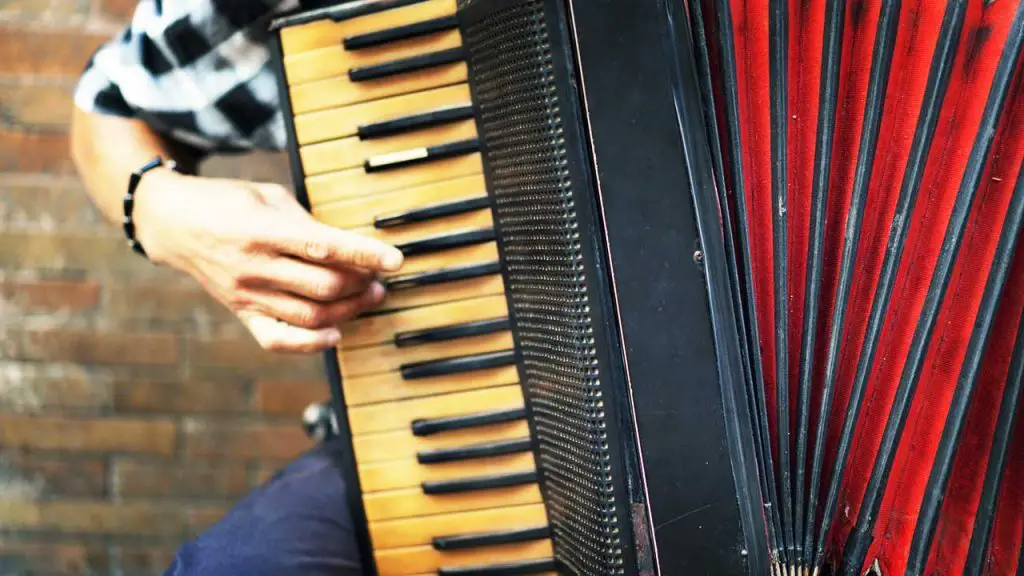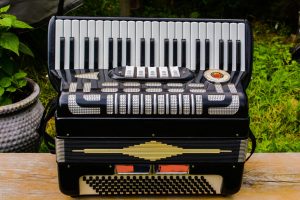Folkstrings.com is reader-supported. When you buy through links on our site, we may earn a small commission.
Accordions are expensive instruments that require care. A little accordion maintenance goes a long way towards protecting your instrument investment. From cleaning to storage, you need to know how to care for your accordion and keep it sounding beautiful for many years.
Avoid The Biggest Mistakes
One of the biggest mistakes people make regarding accordion maintenance is treating their instruments like a toy. Please avoid the temptation to blow on the reeds as a test to see if they work.
Blowing on the reeds will cause moisture buildup and rust. You should also avoid touching the steel reeds because they will rust where you touch them.
With this guide, I hope to help you learn how to take better care of your accordion. These maintenance tasks are not overly difficult and will keep your accordion playing and sounding as it should.
Table of Contents
- Avoid The Biggest Mistakes
- How to Clean an Accordion
- How to Clean Accordion Reeds
- How to Store an Accordion
- What Can I Use to Clean My Accordion?
- How Do You Know If Your Reeds Are Bad?
- How Often Do Accordions Need Maintenance?
- Accordion Maintenance – Final Thoughts
How to Clean an Accordion
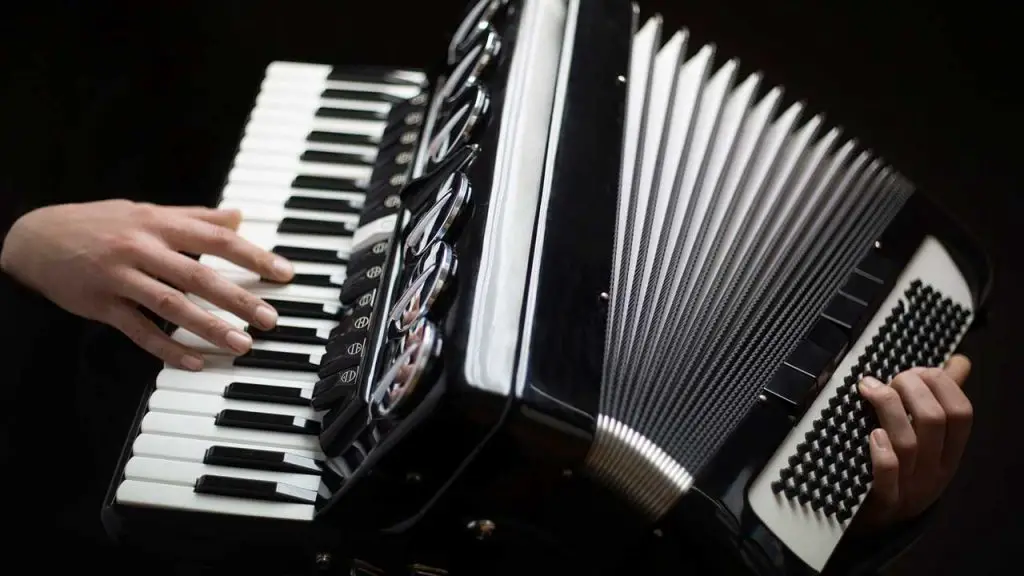
The first step of accordion maintenance is cleaning, but cleaning the right way.
Your accordion needs a gentle cleaning to remove dust on the keys and other components each time you play. You should carry out deep cleanings every two to three years. The following offers some steps you should take to clean your instrument and make it look and play like new again.
- First, take a microfiber cloth and carefully wipe down the outside of your accordion. Make sure there is no dust. If it has been a long time since you wiped down the outside, you may need to use a cleaning product. I will offer some recommendations later.
- Use a gentle dish washing liquid mixed with a little water to clean any oily grime and fingerprints from the outside of your accordion. Do not use too much. The cleaning cloth should not be dripping wet. Dampen the cloth and use gentle pressure to clean the accordion shell and keys.
- You can use a polishing cloth to further remove any smudges and fingerprints. Polishing cloths help bring a beautiful shine back to your accordion.
- Clean the interior metal parts with rubbing alcohol. Make sure you do not use water on the interior. Alcohol evaporates quickly so it will not cause rusting.
- Use a can of compressed air to remove any dust that may have built up inside the accordion.
How to Clean Accordion Reeds
Before I give you instructions on including the reeds of your accordion, I want to offer an accordion maintenance word of caution to save you making the mistake that many others do.
If you do not feel comfortable removing the reeds of your accordion, leave the cleaning to a professional.
Take the following steps to ensure you clean the reeds safely and do not cause damage.
- Remove all the reed plates. Removing the plates is the only way to determine if the undersides are rusty. If you only clean the tops, rust could lurk on the underside and lead to damage.
- Remove all the old valves. You should replace the valves if they become worn. Worn valves will not allow a clear sound to emanate from your accordion.
- Remove any old wax from the reed plates and chambers. Old wax can build up and cause sound blocks in the reeds.
- Replace all your valves. Replacing the valves will make your accordion sound like new again.
- Next, you will need to re-wax the reed plates and put them back into place.
- Tune your reeds. There are multiple ways to tune your reeds. If you do not feel confident, take your accordion to a professional.
How to Store an Accordion
After you have cleaned your accordion, proper storage is a must. Improper storage can cause many problems with the function of your accordion. Catastrophic and irreparable damage can occur. In the following, I will give you information about proper storage.
Store Upright
In most cases, you will need to store your accordion in an upright position, resting on its base end. If you store your accordion horizontally, half of the reeds will rest upside down and will begin to permanently sag. Sagging reeds will prevent the accordion from playing properly and will create a rattling sound when you are playing
Store in Low Humidity
One of the worst things you can do for an accordion is to stuff it in the basement. Basements are likely full of humidity which will cause rusting in your reed plates. Keep your accordion in a climate-controlled area for best results.
Avoid the Heat
Heat is an enemy to an accordion. Never leave your accordion in your car on a hot summer day. Never place accordions in a window. When exposed to heat, the wax on the reed plates will begin to melt and cause the reeds to slip out of place.
Keep the Accordion in Its Case
Do not store your accordion outside of its case. Storing the instrument outside of a case exposes it to more dirt and grime. Your accordion is more likely to become damaged when stored without a case.
When placing your accordion inside the case, take care. Put the keyboard in first. When positioning the accordion in the case, do not tug on the keys or you could cause them to bend permanently. Make sure the brass strap is not caught underneath the accordion.
Keep Your Accordion Out of the Cold
Just like extreme heat, cold environments are also damaging to accordions. These instruments are temperamental and can become damaged easily. Cold environments lead to condensation which can cause rusting in the reeds.
What Can I Use to Clean My Accordion?
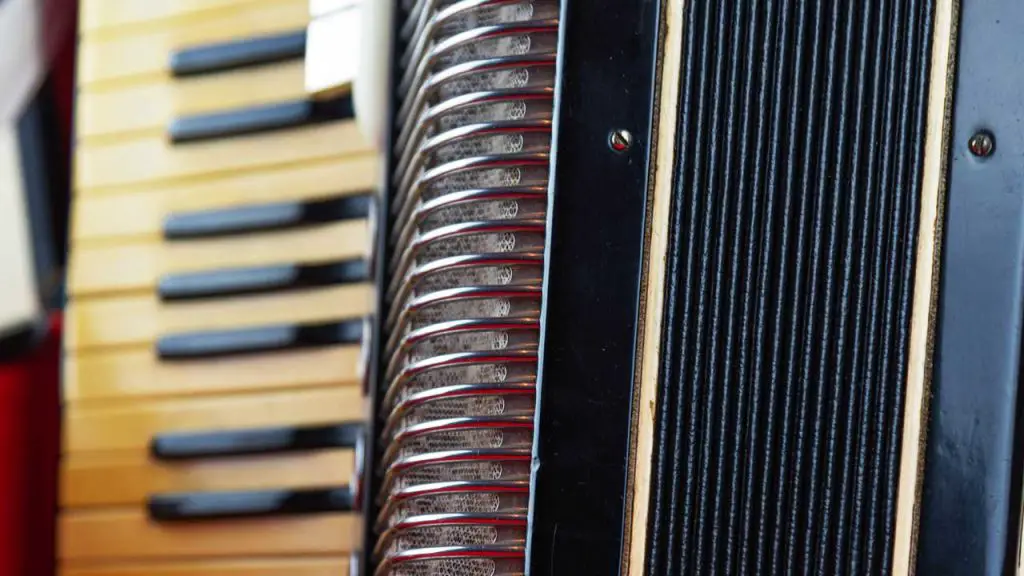
You do not need a lot of fancy cleaners to carry out good accordion maintenance, but I recommend you purchase a high-quality polishing cloth and microfiber cloths.
You should also check out this key cleaning solution. This key cleaner will make your keyboard shine again. It removes all the grime from your fingers.
Dawn dish liquid is an excellent cleaner for the outside of your accordion. Mix it with three parts water to one part Dawn. If you use another brand, make sure it is a pure soap cleaner and does not contain bleach or other ingredients. Always test on an inconspicuous part before cleaning the entire accordion.
Rubbing alcohol is a staple when it comes to accordion maintenance, it is easily the best cleaner for the metal parts of your accordion.
Alcohol can also be used to remove the oily grime from your fingers.
Note: Do not use rubbing alcohol with a percentage less than 70% or your instrument could develop rust.
How Do You Know If Your Reeds Are Bad?
Accordion reeds do not last forever. Even with proper storage, they can break down over time and become rusty. If you notice any of the following signs, you need to replace your accordion reeds.
- When playing with bad reeds, you will hear a buzzing sound that grows louder with increased damage.
- If you open your accordion and see physical damage to any of the reeds, replace them all. You should replace all reeds if you have to replace one because of the uniform sound and performance.
- Accordions that smell moldy and like mildew will often have moisture problems, which likely means the reeds are rusty.
- If you notice curling in the reeds or the wax loosens and causes the reeds to slip out of place, they need replacing.
- You may also hear a flapping sound when playing your accordion if the reeds are bad.
- Delays in sound production are also a sure sign of reed problems. The reed should respond immediately when working correctly.
- If you file a note to go flat and it goes sharp instead, chances are the valve is caught and held in a permanently opened position.
- You may hear a double kick when engaging a bad reed.
If you need to replace a reed, it is best to replace them all. Remove any of the old glue and wax to ensure the new reeds will sit flush with the accordion. Installing new reeds is not overly difficult. As always, if you do not feel confident, contact a professional accordion repair technician for maintenance services.
How Often Do Accordions Need Maintenance?
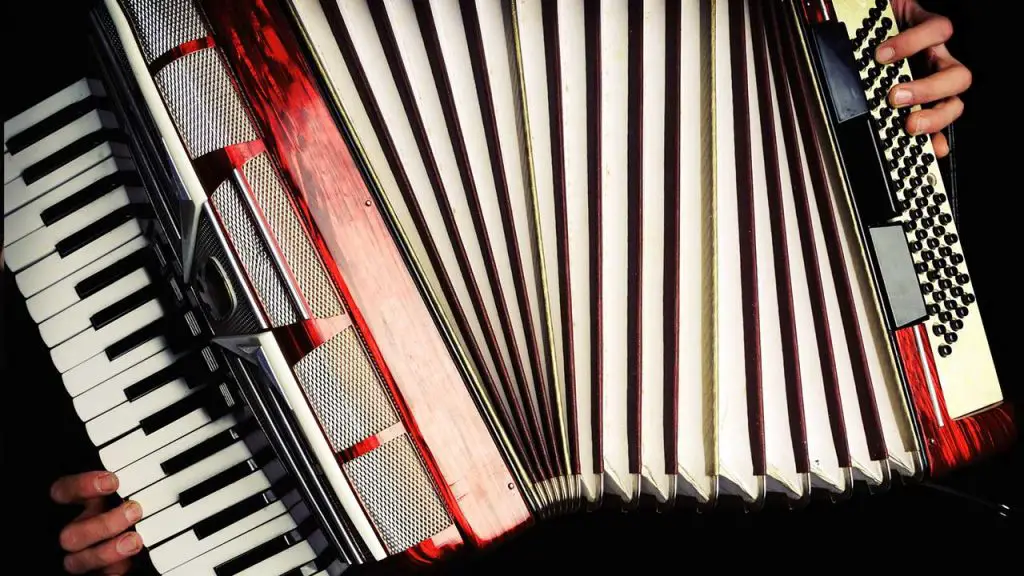
Accordion maintenance experts recommend deep cleanings every two to three years. The frequency of accordion maintenance will depend on the age of your accordion, the storage method, and how often you play.
You should work to keep your accordion clean at all times and always store the instrument in its case. Storing the accordion in a case will cut down on its exposure to dirt, grime, and moisture, which can all lead to damage.
If you neglect your accordion, its years are going to be diminished. Even the most expensive and best of accordions will fail without routine cleaning every couple of years.
I personally would consider doing a deep cleaning once a year. Opening your accordion allows you to check the metal components for rust and ensure there is no reed damage.
If you find damages early, you can repair the issues without so much cost. Keeping a check on the inner components of the instrument will keep it playing correctly.
Accordion Maintenance – Final Thoughts
Accordion maintenance is not difficult. Deep cleaning your instrument will keep its components working effectively, helping you produce a beautiful sound.
Accordions that are cleaned regularly are less likely to break down and become damaged. Although you can undoubtedly hire a professional to take care of the cleaning for you, the ease of this process should encourage you to try it yourself at least once.
Remember to assemble all your materials and cleaning supplies before getting started. Refer to your owner’s manual before opening your accordion and starting the cleaning process. When in doubt, rely on a professional to get your accordion maintenance done.
Author Profile
-
Daniel Johnstone is an English writer with a love for stringed instruments from around the world.
He shares his love for these instruments through his writing for folkstrings.com, a website dedicated to all things related to folk string music.
Daniel's passion for music started at a young age, and he has since become an accomplished musician, playing guitar, cavaco, and recently, the harp.
His dedication to learning and sharing his knowledge of stringed instruments is evident in his insightful and engaging blog posts. Whether you're a seasoned musician or a beginner, Daniel's writing is sure to inspire and entertain you.
When he's not playing music or writing, you can find Daniel exploring new instruments and seeking out new sounds to share with his readers.
Latest entries
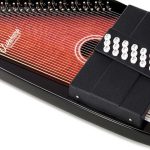 AutoharpApril 4, 2024Is Autoharp Easy to Play? Unveiling the Truth for Beginners
AutoharpApril 4, 2024Is Autoharp Easy to Play? Unveiling the Truth for Beginners AutoharpApril 4, 2024What Is an Autoharp Worth? Your Guide to Pricing and Value
AutoharpApril 4, 2024What Is an Autoharp Worth? Your Guide to Pricing and Value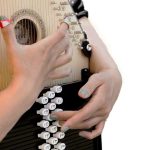 AutoharpApril 4, 2024Where Is the Best Place to Buy an Autoharp? Your Top Picks Reviewed
AutoharpApril 4, 2024Where Is the Best Place to Buy an Autoharp? Your Top Picks Reviewed AutoharpApril 4, 2024How Does the Autoharp Work? – Unveiling Its Melodic Secrets
AutoharpApril 4, 2024How Does the Autoharp Work? – Unveiling Its Melodic Secrets

